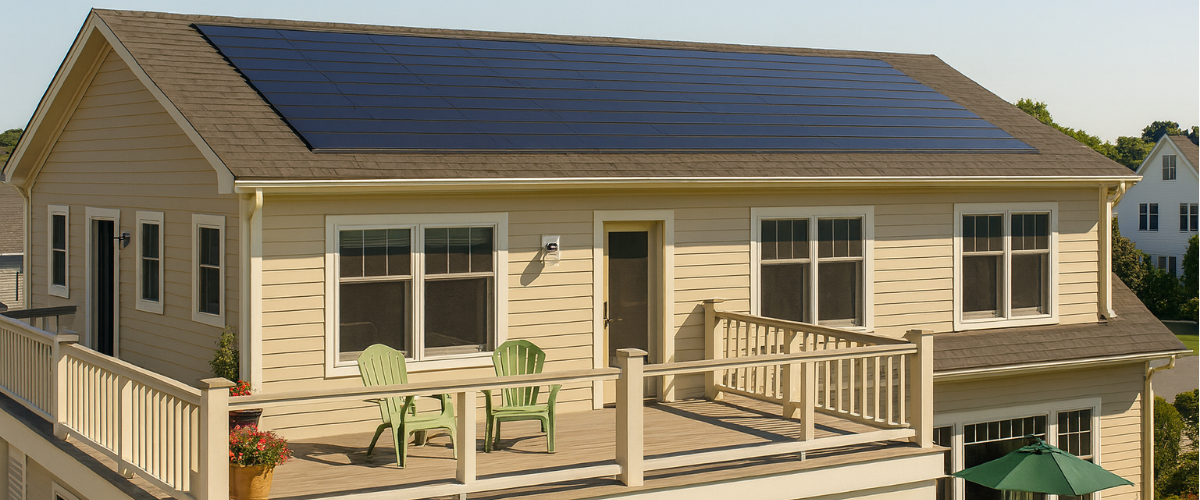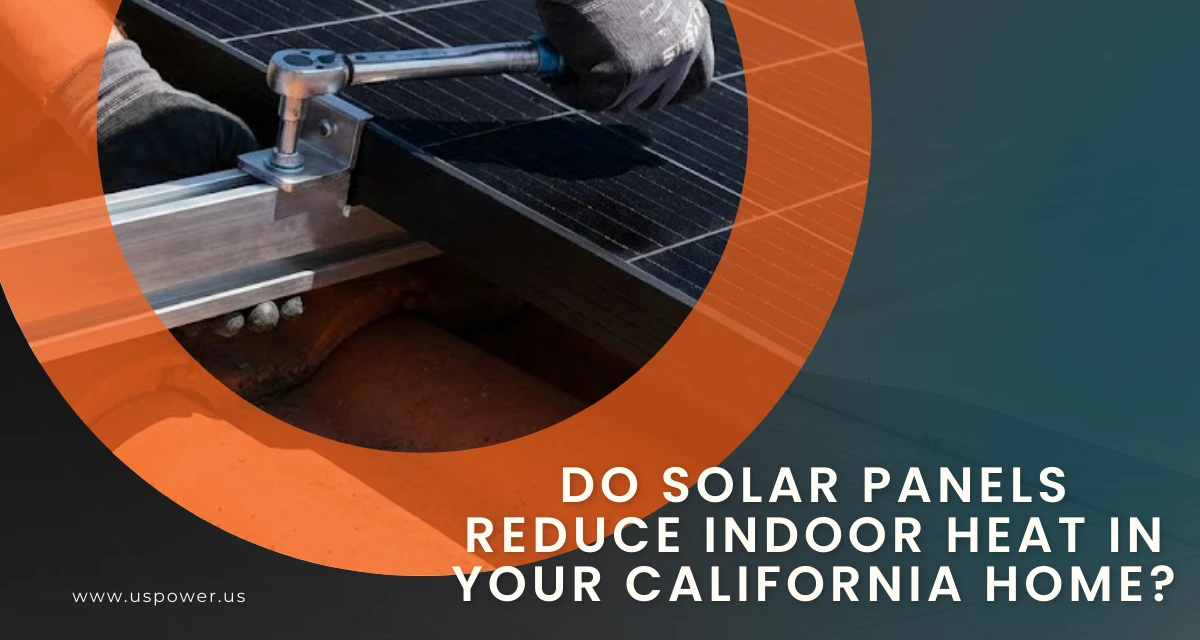Best Solar Pool Heater for Your Home

Solar and Roofing Advisor
Discover the best solar pool heater for your home, including top systems, benefits, and expert tips for maximum efficiency.

Are you tired of high energy bills and looking for an eco-friendly way to keep your pool warm? Look no further! The best solar pool heater can provide a sustainable solution to extend your swimming season without breaking the bank. In this guide, we'll explore the benefits, practical applications, and tips for using the best solar pool heater effectively.
Why Choose a Solar Pool Heater?
Solar pool heaters harness the sun's energy to heat your pool, offering a cost-effective and environmentally friendly alternative to traditional heating methods. Here are some of the best solar pool heater benefits:
1. Energy Efficiency
Solar pool heaters use free, renewable solar energy—reducing your reliance on fossil fuels and cutting energy costs dramatically.
2. Cost Savings
After the initial setup, solar pool heating systems have very low operating costs. Over time, they pay for themselves through energy savings.
3. Eco-Friendly Solution
Reduce your carbon footprint and greenhouse gas emissions by switching to solar. It’s a cleaner way to enjoy your pool guilt-free.
4. Low Maintenance
With minimal moving parts, solar pool heaters require less maintenance and often last 10–20 years or more with proper care.
5. Extended Swim Season
Solar heating lets you comfortably enjoy your pool for more months out of the year—even during cooler seasons.
6. Increased Property Value
Homes with solar upgrades, including pool heaters, tend to attract buyers looking for energy-efficient amenities.
How Does a Solar Pool Heater Work?
Understanding how to use the best solar pool heater is crucial for maximizing its benefits. Here's a simple breakdown of its operation:
1. Pool Water Circulation
Your existing pool pump circulates water through a series of solar collectors—typically mounted on your roof or another sunny area.
2. Solar Energy Absorption
As water flows through the solar collectors, it’s naturally heated by the sun’s energy. The collectors are designed to absorb and retain solar heat efficiently.
3. Heated Water Returns to Pool
The now-warmed water is returned to your pool, raising the overall water temperature gradually throughout the day.
4. Automatic Control (Optional)
Most solar pool heating systems come with automated controls that monitor temperature settings and adjust flow as needed—ensuring your pool stays at your desired comfort level.
Choosing the Best Solar Pool Heater
When selecting the best solar pool heater for your needs, consider the following factors:
1. Pool Size
The size of your pool will determine the number of solar collectors needed. Larger pools require more collectors to achieve the desired temperature.
2. Climate
Your local climate affects the efficiency of a solar pool heater. In sunnier regions, fewer collectors may be needed compared to areas with less sunlight.
3. Budget
While solar pool heaters can be a significant upfront investment, they offer long-term savings. Compare different models and brands to find one that fits your budget.
Practical Example: Solar Pool Heating in Action
Consider the case of a family in sunny California who installed a solar pool heater. By using a system with enough collectors to cover 50-70% of their pool's surface area, they were able to enjoy swimming comfortably from early spring through late fall. Their energy bills decreased significantly, and they contributed positively to the environment by reducing reliance on fossil fuels.
Actionable Tips for Maximizing Your Solar Pool Heater
1. Run the Pump During Peak Sunlight Hours
Operate your pool pump between 10 a.m. and 4 p.m., when solar energy is most intense. This ensures your system captures the maximum amount of heat.
2. Use a Solar Pool Cover
At night or during cloudy days, use a solar pool cover (also called a solar blanket) to retain heat and prevent evaporation, significantly reducing heat loss.
3. Keep Solar Collectors Clean
Dirt, leaves, and debris can block sunlight. Regularly clean the solar panels or collectors to maintain peak performance.
4. Adjust Your Temperature Settings
Avoid overheating your pool by setting a reasonable temperature (typically 78–82°F). This also reduces wear on your system and saves energy.
5. Perform Regular Maintenance Checks
Inspect valves, sensors, and plumbing connections every few months to spot any leaks or issues early. Preventive care extends system life.
6. Use an Automated Controller
Consider installing an automatic solar controller that monitors the pool and collector temperatures and optimizes water flow automatically for maximum efficiency.
7. Optimize Panel Placement
Ensure collectors are positioned in a south-facing direction (or as close as possible) with full sun exposure throughout the day for optimal heating.
Maximize Pool Comfort and Savings with Solar Heating
Investing in the best solar pool heater not only extends your swimming season but also offers substantial environmental and financial benefits. By understanding how to use your solar pool heater effectively, you can enjoy a warm pool while contributing to a greener planet.
For those interested in sustainable energy solutions, reach out to US Power for expert advice and products tailored to your needs.
Embrace the power of the sun and dive into a future of energy efficiency!
Frequently Asked Questions
Related Articles
Our Related Blogs
Can Solar Panels Work During a Power Outage? (The Answer Might Surprise You)
Why your solar panels go dark during blackouts and what you can actually do about it.
Do Solar Panels Reduce Indoor Heat in Your California Home?
Your roof is making your house hotter—here's how solar panels can help cool it down.
Things You MUST KNOW Before Going Solar in California
California rules, incentives, and savings make solar a smart move for homeowners.








We empower communities and businesses to harness clean, renewable solar energy solutions that drive sustainable growth.
Ready to Own Your Power? Call us today!
818-650-8010
Copyright © 2025 US Power - Axia by QCells. All Rights Reserved.
Privacy is important to us, so you have the option of disabling certain types of storage that may not be necessary for the basic functioning of the website. Blocking categories may impact your experience on the website.
Essential
These items are required to enable basic website functionality.
Personalization
These items allow the website to remember choices you make (such as your user name, language, or the region you are in) and provide enhanced, more personal features.
Marketing
These items are used to deliver advertising that is more relevant to you and your interests.
Analytics
These items help the website operator understand how its website performs, how visitors interact with the site, and whether there may be technical issues.
We and our third-party partners use cookies and other technologies to enhance and track your experience on this site, conduct analytics, and personalize marketing to you. By using the site, you agree to our use of these technologies, including recording and monitoring your interactions with the site.
Get an instant solar estimate using satellite!









